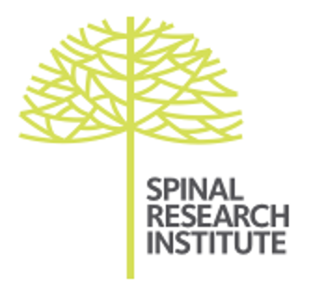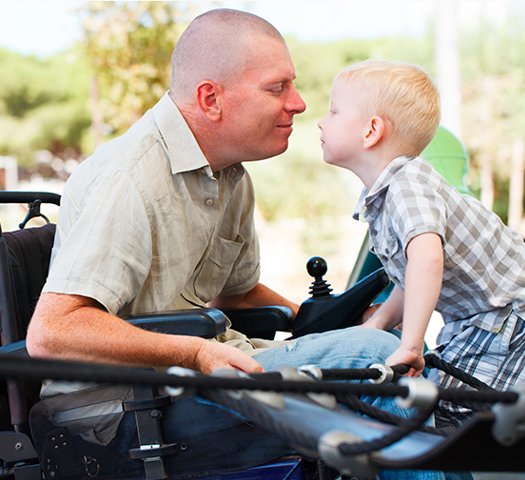
Bordo International and The Spinal Research Institute: Advancing Spinal Cord Injury Research
Bordo International is honoured to partner with The Spinal Research Institute (SRI) in its mission to improve outcomes for individuals with spinal cord injuries through global collaboration and innovation.
The Spinal Research Institute drives global collaboration among researchers and clinicians through initiatives like the Spinal Cord Research Hub (SCoRH), and empowers those with lived experience to shape research priorities. Our partnership supports these efforts, accelerating the translation of research into real-world solutions that enhance the quality of life for those affected by spinal cord injuries.

What is Spinal Cord Injury?
Spinal cord injury results from damage to the spinal cord, leading to changes in function that may be temporary or permanent. Often, this damage is caused by traumatic injuries that disrupt nerve fibres and destroy nerve cells at and around the injury site, resulting in paralysis.
In Australia, there are currently 20,800 individuals living with spinal cord injury who often face numerous secondary health complications that impact their quality of life and independence. At Bordo, we are committed to improving these outcomes through our partnership with the Spinal Research Institute (SRI). Together, we are dedicated to advancing global collaboration in spinal cord research and clinical trials, with the goal of accelerating the development of effective and impactful research outcomes.
Why partner with the Spinal Research Institute?
Every year, numerous studies are conducted on spinal cord injury, but due to limited participant numbers, many of these studies yield inconclusive results that do not influence health policy or clinical practice. Established in 2011 by Associate Professor Doug Brown AM, the Spinal Research Institute is working to change this.
By creating platforms and programs that foster multi-center collaboration and enhance research capacity, the SRI aims to expand the scale of clinical trials. This approach is designed to produce conclusive and translatable research outcomes that can directly improve the lives of individuals with spinal cord injury.
The SRI focuses on five key areas:
1. Spinal Cord Research Hub (SCoRH): An online platform that brings researchers, clinicians, and people living with spinal cord injury from around the world together to collaborate on research projects, share ideas and experiences, and make connections.
Researchers can build their profiles, collaborate in groups, conference, discuss, and find out about upcoming conferences and workshops.
2. Research Collaboration Grants: SCI Research Collaboration Grants enable recipients to attend the prestigious International Spinal Cord Society (ISCoS) Annual Scientific Meeting. These grants are designed to foster global knowledge, exchange and build vital relationships among researchers, institutions, and countries involved in spinal cord research.
By funding attendance at the ISCoS Annual Meeting, the grants also provide opportunities for recipients to connect with organisations that align with their research focus.
3. Research Writing Prize: The Spinal Research Institute encourages spinal cord injury researchers and clinicians to creatively present their work to a broad, non-scientific audience through the annual Research Writing Prize.
Because spinal cord injury research is being conducted around the world, in developed and developing nations, this initiative highlights global research efforts, recognising the challenges faced by researchers, especially those for whom English is an additional language.
The SRI is dedicated to supporting diverse voices in the field, and successful entries are showcased in the annual publication, Why Research Matters, amplifying important research to a wider audience.
4. Mentor Program: The Spinal Research Institute’s Mentor Program is designed to enhance global collaboration in spinal cord injury research by supporting Early Career Researchers. This program helps participants develop critical skills beyond their own organizations, such as idea design, grant writing, and publication.
Through mentoring, researchers gain access to national and international collaboration opportunities, fostering their growth and expanding their resources.
The program empowers researchers to navigate the complexities of their work with guidance from experienced professionals in the field.
5. Consumer Engagement: The Spinal Research Institute places individuals with lived experience of spinal cord injury, along with their carers, families, and friends, at the heart of its research initiatives. Through the Consumer Engagement Program, the SRI empowers these individuals to co-design and co-deliver research that directly addresses the priorities of the spinal cord injury community.
By actively involving consumers in the research process, the program ensures that the outcomes are more relevant and impactful, leading to significantly improved health outcomes for those affected by spinal cord injuries.
Through this partnership, Bordo supports the SRI’s efforts to translate research into practical solutions, enhancing the quality of life for those affected by spinal cord injuries.
For more details, visit the Spinal Research Institute www.thesri.org
